‘These People Don’t Have the Time to Mourn’
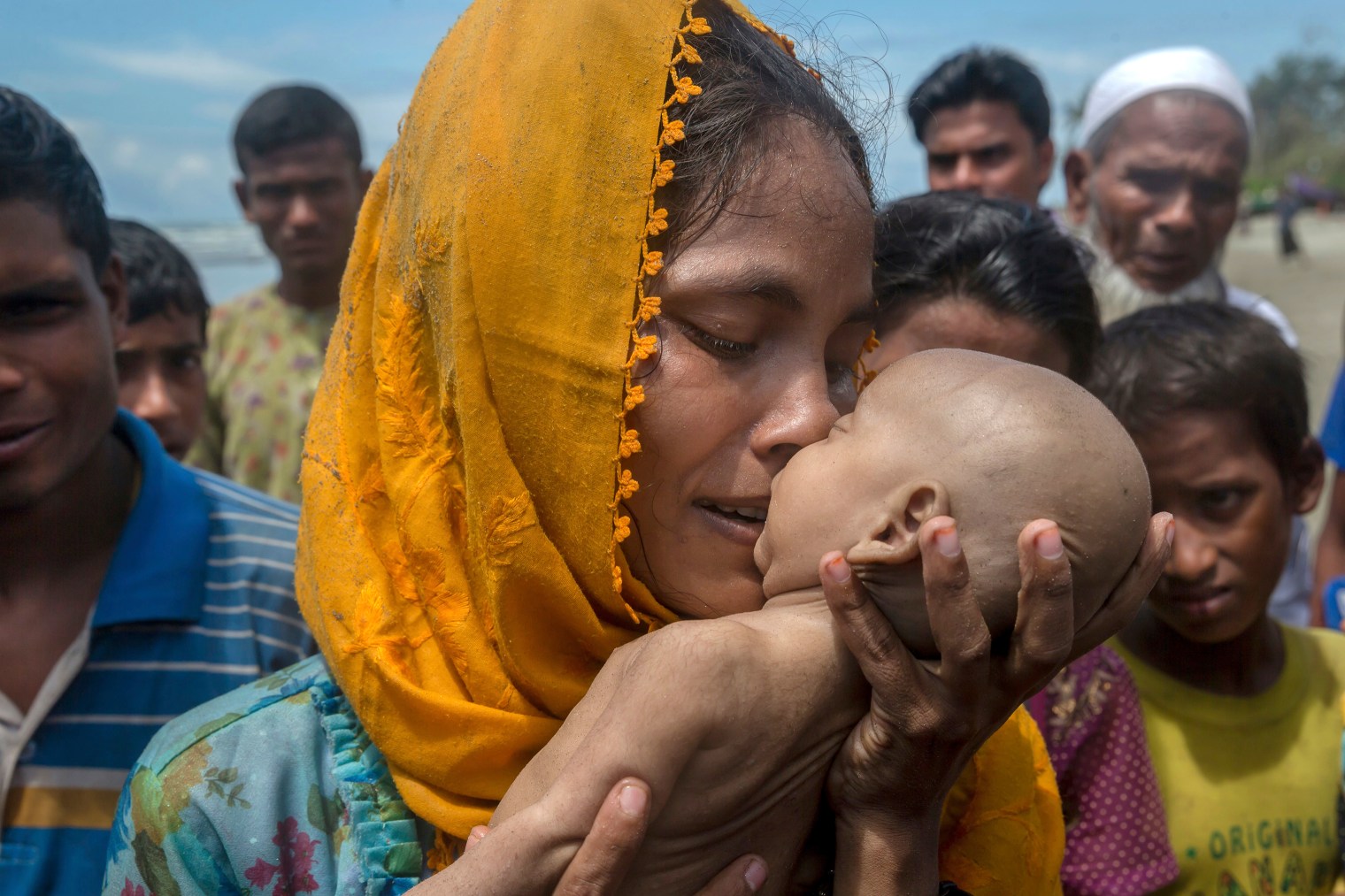 Hanida Begum kisses her infant son, Abdul Masood, who died when their boat capsized near shore in Shah Porir Dwip, Bangladesh, on Sept. 14. Dar Yasin—AP
Hanida Begum kisses her infant son, Abdul Masood, who died when their boat capsized near shore in Shah Porir Dwip, Bangladesh, on Sept. 14. Dar Yasin—AP
A photographer’s tragic encounters from the Rohingya exodus
Photographs and text by Dar Yasin | Produced by Andrew Katz
I have seen internally displaced persons in camps in Afghanistan. I have seen death and destruction in my own homeland of Kashmir, almost on a daily basis. But even within a few hours of being on the ground here in Cox’s Bazar, Bangladesh, where I arrived on Sept. 13, I could tell this was different. It’s just the sheer scale of the crisis. Everywhere you look there is desperation for food, for water, for shelter, for a familiar face from home in Myanmar.
It’s a habit of mine to talk to people I’m photographing. My fixer who helps me with translations is from Cox’s Bazar and he says the Rohingya language and his local language are similar. The refugees are willing, but most times they are just so exhausted and devastated that it’s difficult for them to explain what they have been through.
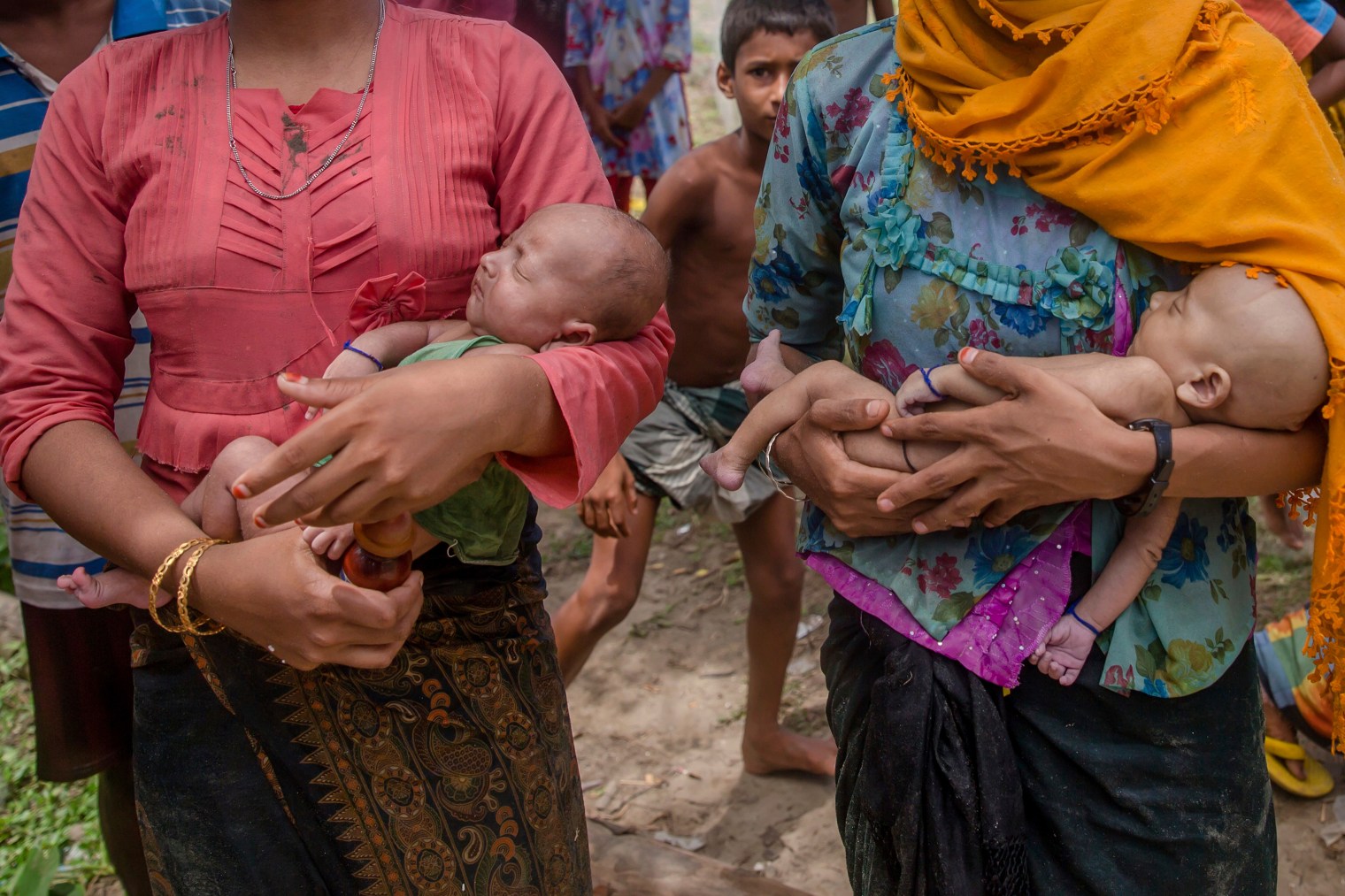 Hanida Begum, right, holds her infant son, Abdul Masood, who died when their boat capsized minutes before reaching shore on Sept. 14. A relative holds his twin brother, who survived. Dar Yasin—AP
Hanida Begum, right, holds her infant son, Abdul Masood, who died when their boat capsized minutes before reaching shore on Sept. 14. A relative holds his twin brother, who survived. Dar Yasin—AP
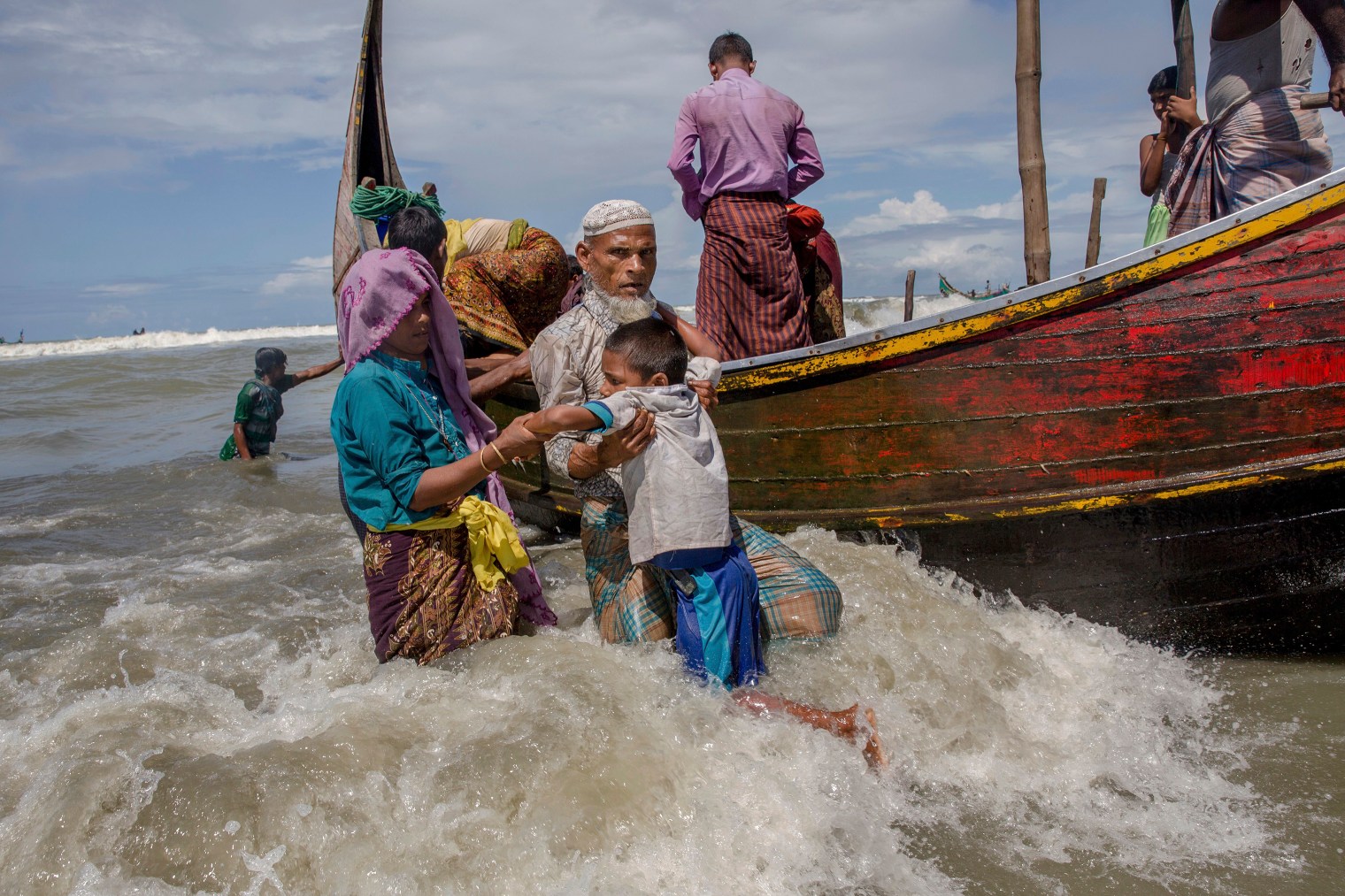 An elderly Rohingya Muslim man helps a boy off a boat after they arrived from Myanmar to Bangladesh on Sept. 14. Dar Yasin—AP
An elderly Rohingya Muslim man helps a boy off a boat after they arrived from Myanmar to Bangladesh on Sept. 14. Dar Yasin—AP
The next day, on Shah Porir Dwip beach, I could see in the distance that there was some sort of commotion. A boat had capsized. Some women were unconscious. One woman was crying, as a family member had drowned; three more were in precarious condition and I was unsure if they would make it. Another woman was consoling her.
And then suddenly, the woman who was consoling the crying woman started wailing herself. Her husband had come over with Abdul Masood, one of their twin sons, who was dead. She held one child who was alive and one who wasn’t breathing. It was heartbreaking. The boat they were in had capsized a few meters from shore. They were among 45 members of the same extended family, one of whom was being mourned. To then discover a 40-day-old child had also died, while his brother was still alive, was devastating.
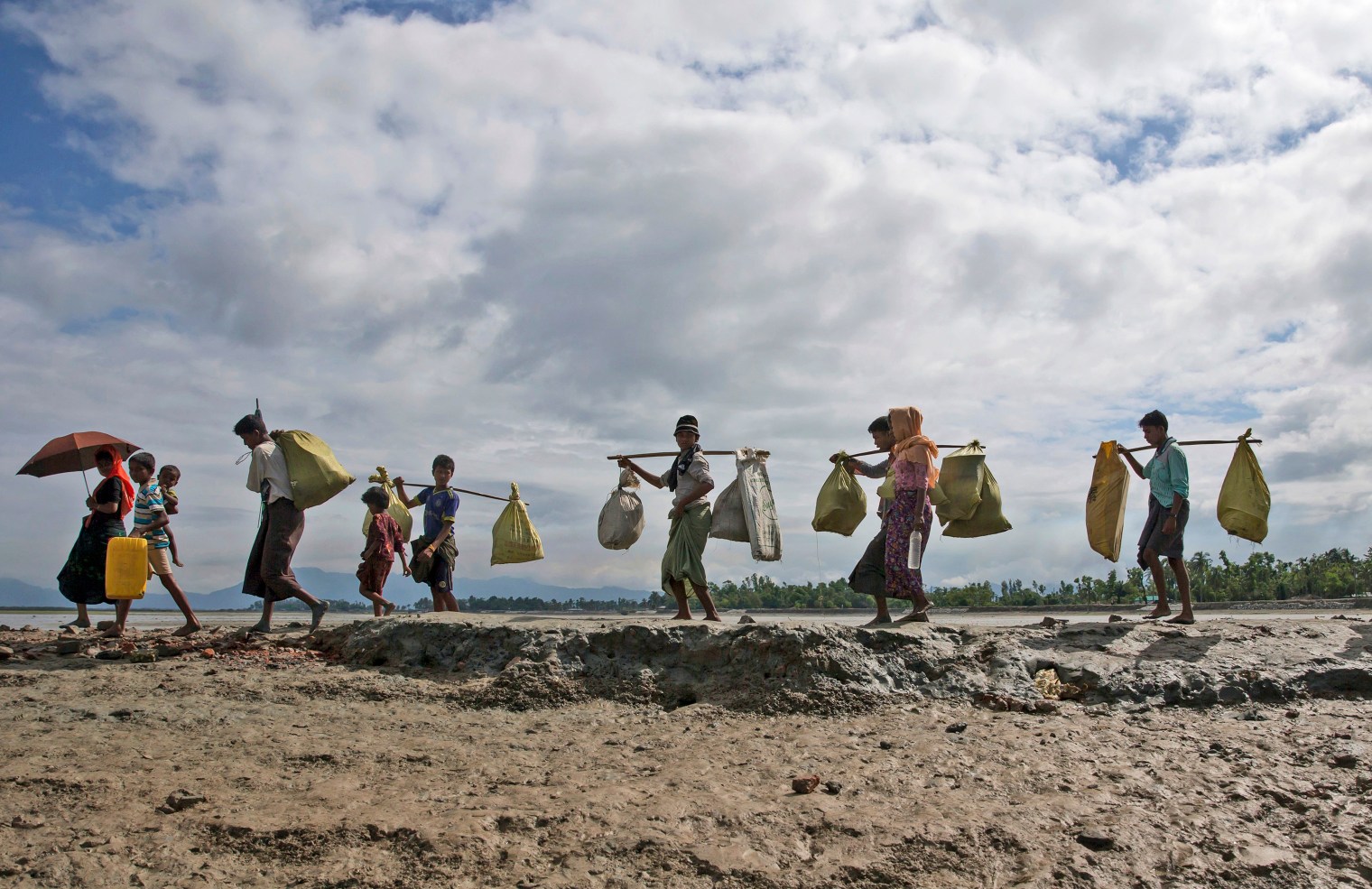 Rohingya walk toward a refugee camp in Shah Porir Dwip on Sept. 14. Dar Yasin—AP
Rohingya walk toward a refugee camp in Shah Porir Dwip on Sept. 14. Dar Yasin—AP
I had no idea what to say or do. I simply took pictures and hung around. The father and other relatives went in search of those who had been moved to a nearby medical center and to meet local authorities, to get permission to bury the dead. Within hours, all of them were moving on in search of food and water and shelter. At that time I realized these people don’t have the time to mourn. They have to keep moving.
That entire boatload of people will haunt me always. That image of Hanida and that hour with those refugees still gives me goosebumps. To flee from mindless violence, to seek safety in a boat, to have the boat capsize and then to mourn one child and be thankful, at the same time, that at least one child is still with you. This image, for me, is the price I pay to bear witness to a human condition that has always existed: persecution and fleeing and never belonging.
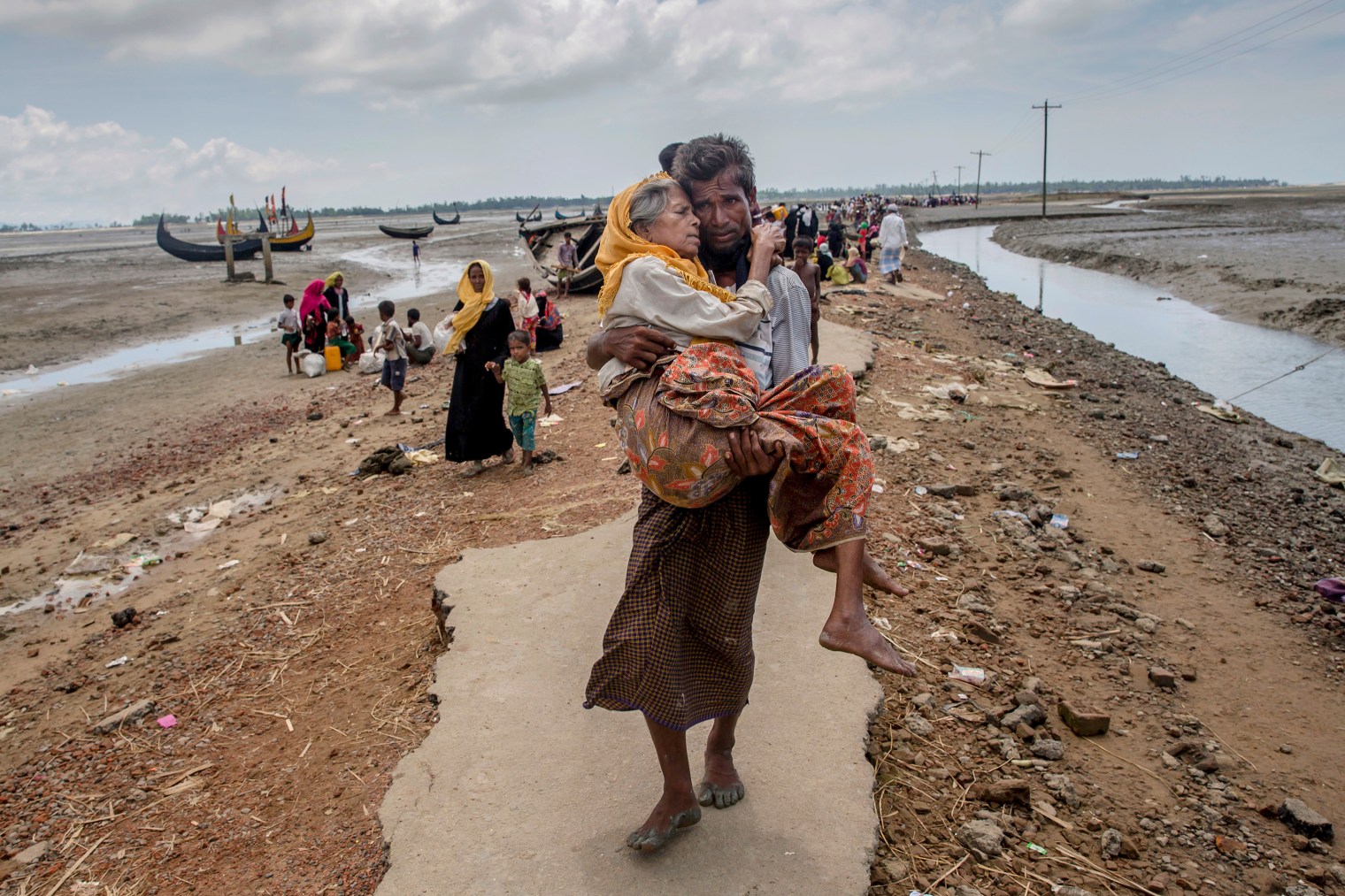 Abdul Kareem carries his mother, Alima Khatoon, to a refugee camp after crossing from Myanmar into Bangladesh on Sept. 16. Dar Yasin—AP
Abdul Kareem carries his mother, Alima Khatoon, to a refugee camp after crossing from Myanmar into Bangladesh on Sept. 16. Dar Yasin—AP
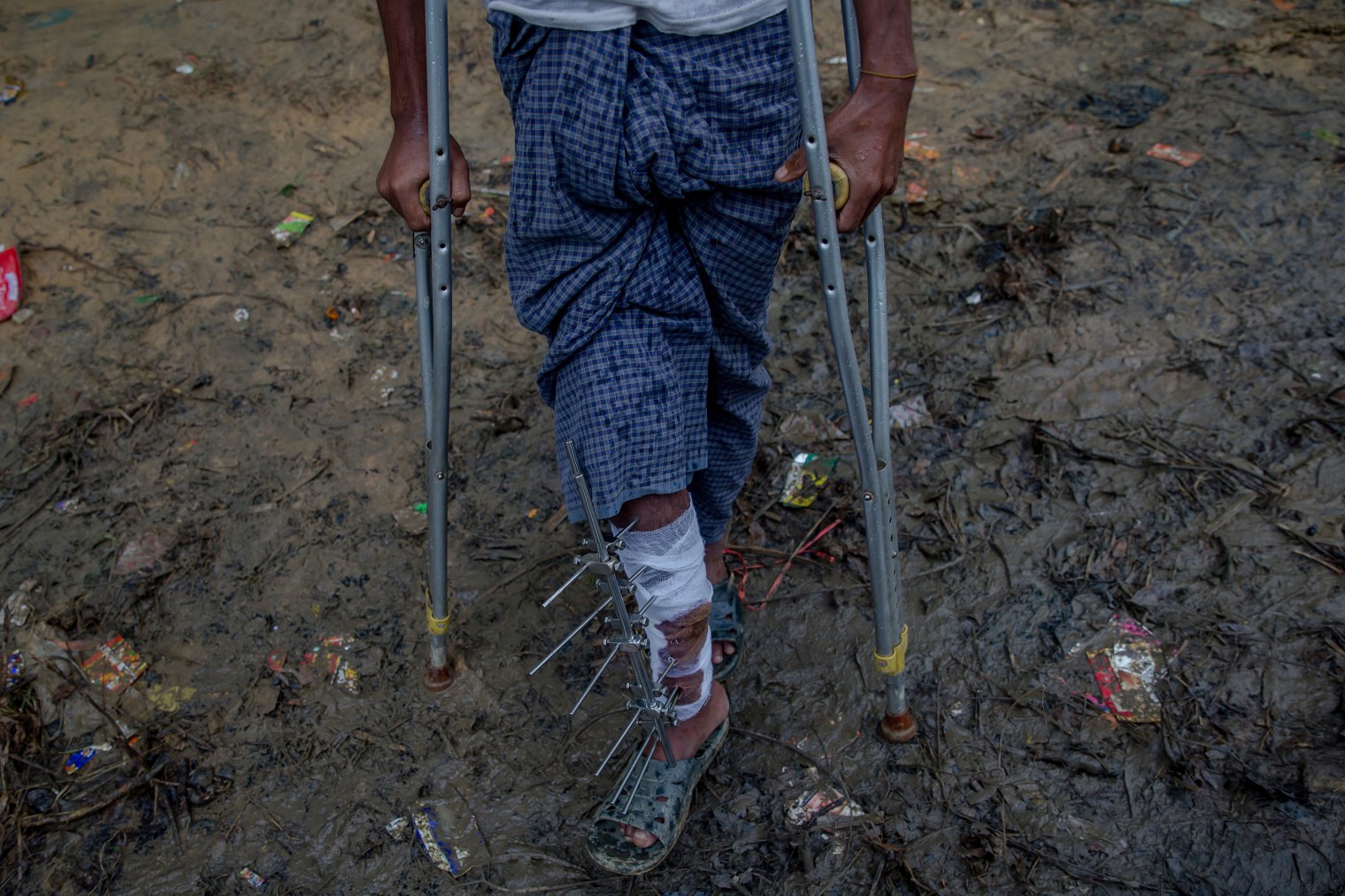 Mohammad Zakaria, who sustained bullet injuries to his leg when he says Myanmar monks and soldiers attacked his village, waits for food outside the Balukhali refugee camp on Sept. 17. Dar Yasin—AP
Mohammad Zakaria, who sustained bullet injuries to his leg when he says Myanmar monks and soldiers attacked his village, waits for food outside the Balukhali refugee camp on Sept. 17. Dar Yasin—AP
Two days later, I saw Abdul Kareem and Alima Khatoon as I was walking near shore. I stopped to take their pictures and then I sat down and talked to Abdul for a while. He spoke of how he had fled with others from his village and had made the boat journey in the dead of the night, in complete darkness, and how this escape was their last hope of staying alive. After a few minutes he picked up his mother again and we parted ways. He started walking toward the camps, following the long line of others making their way there. I haven’t seen him since.
The overwhelming numbers of refugees coming in make it difficult to follow a particular person or family. You find people you desperately want to follow back to the camps in order to see what happens to them next, but even on the walk back to the camps, you lose sight of them. They just become a drop in the ocean of faces that are walking toward more uncertainty.
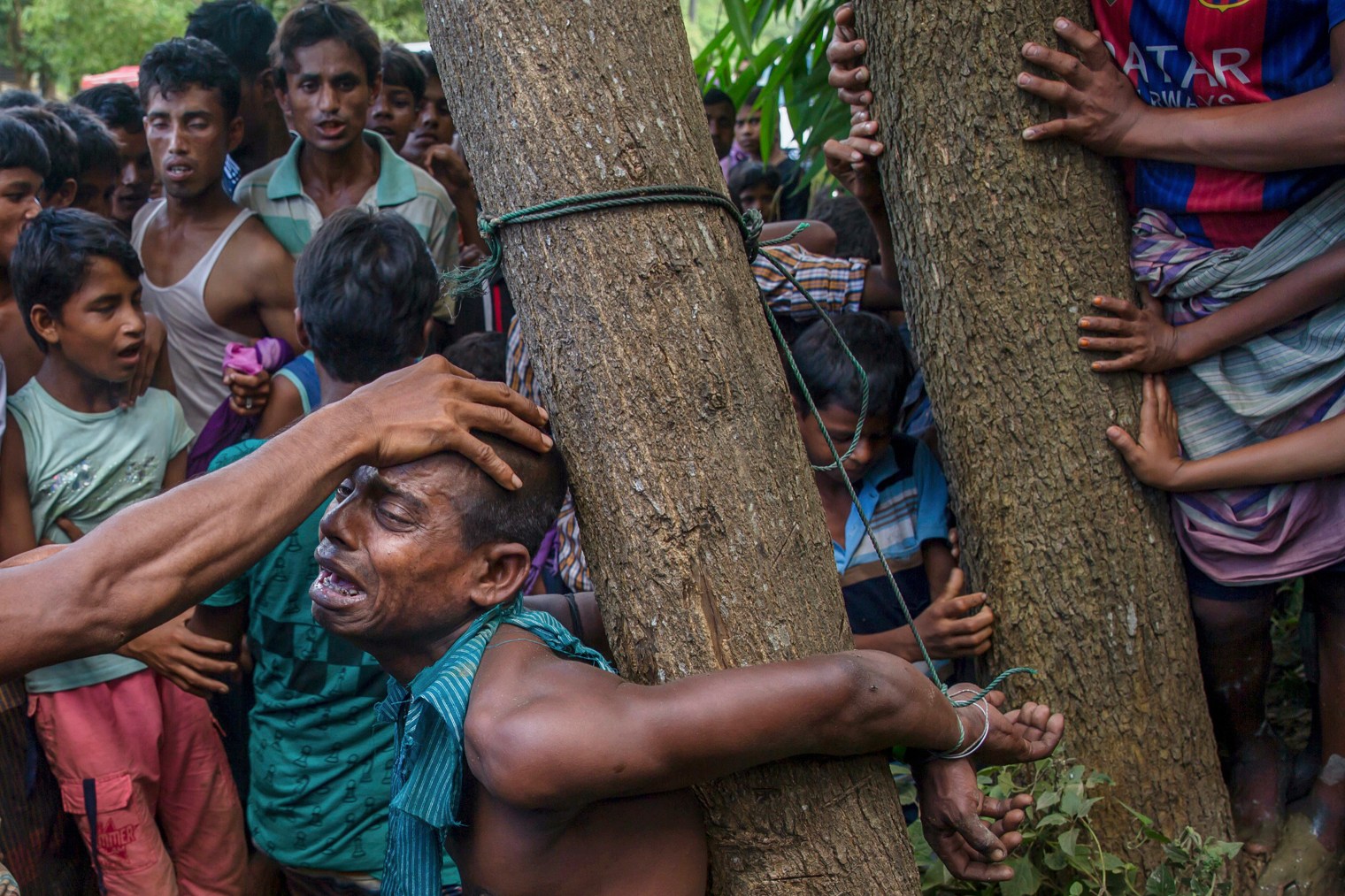 A suspected child trafficker is interrogated near the Balukhali refugee camp on Sept. 15. Dar Yasin—AP
A suspected child trafficker is interrogated near the Balukhali refugee camp on Sept. 15. Dar Yasin—AP
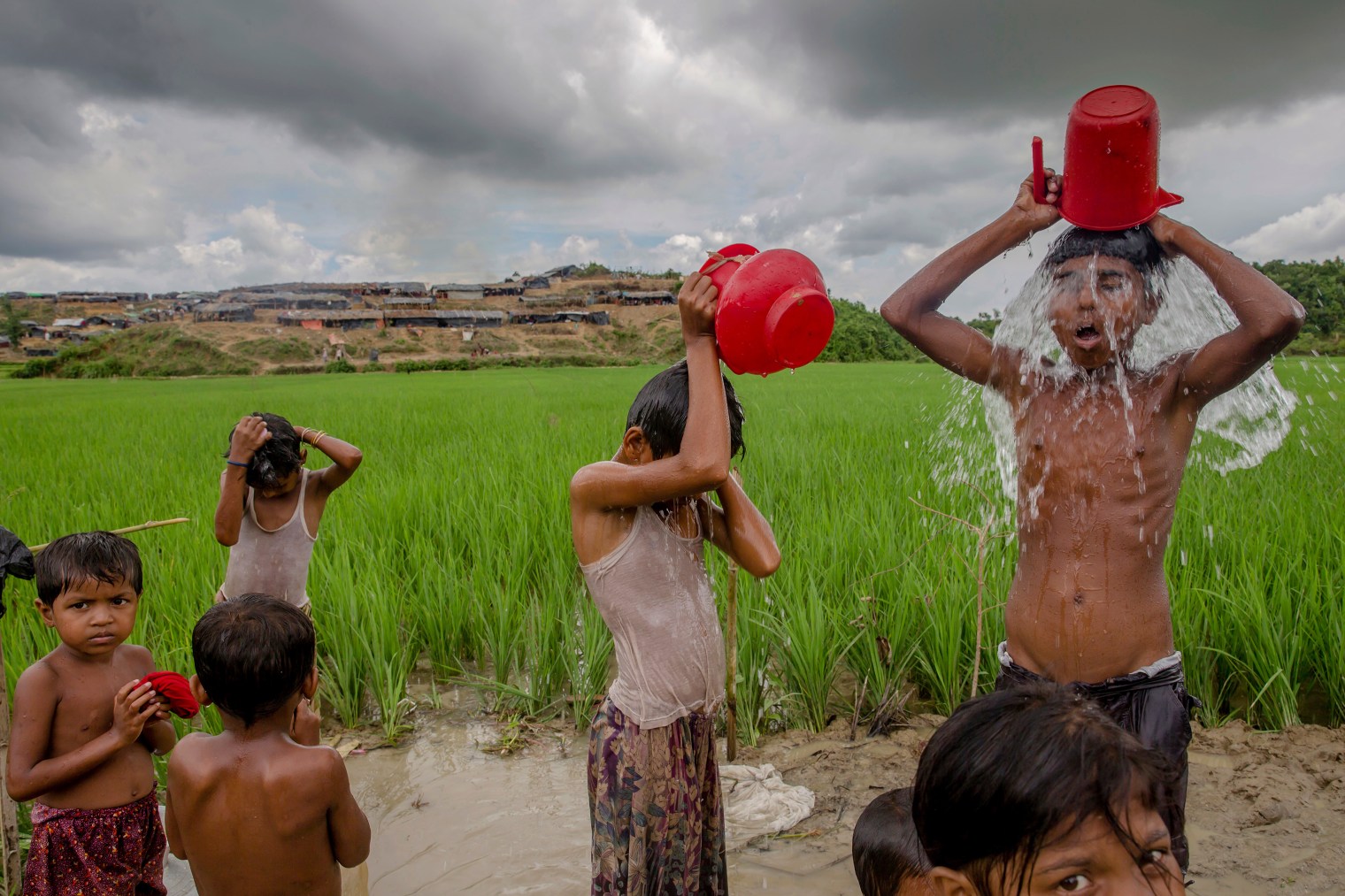 Rohingya children bathe in a paddy field near the Tombru refugee camp on Sept. 15. Dar Yasin—AP
Rohingya children bathe in a paddy field near the Tombru refugee camp on Sept. 15. Dar Yasin—AP
Their movement is heavily restricted. There is limited shelter, limited food and limited medical aid. Transport to better medical facilities or better living conditions is very expensive and they have no money. There is very little to look forward to for now. The home they had is no more. The life they had is no more. In most cases, the family they had is no more.
The things I take for granted—food and shelter and safety—for them, these have been snatched away and replaced by fear. What you aren’t seeing in my pictures are signs of hope, of relief that they have made it alive. It’s an overwhelming sense of bleakness.
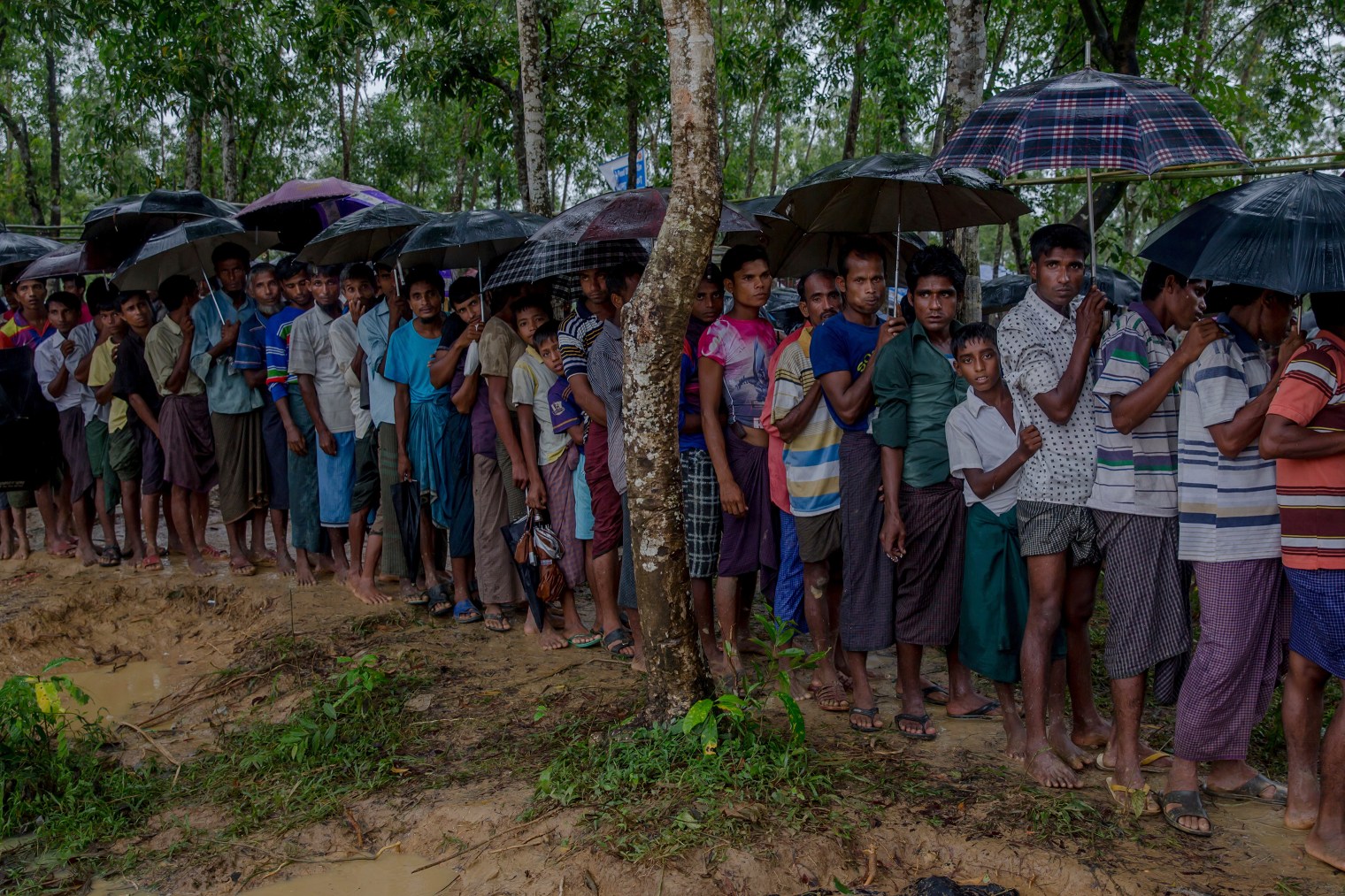 Rohingya men and boys wait to collect a bag of rice distributed by aid agencies in the Balukhali refugee camp on Sept. 17. Dar Yasin—AP
Rohingya men and boys wait to collect a bag of rice distributed by aid agencies in the Balukhali refugee camp on Sept. 17. Dar Yasin—AP
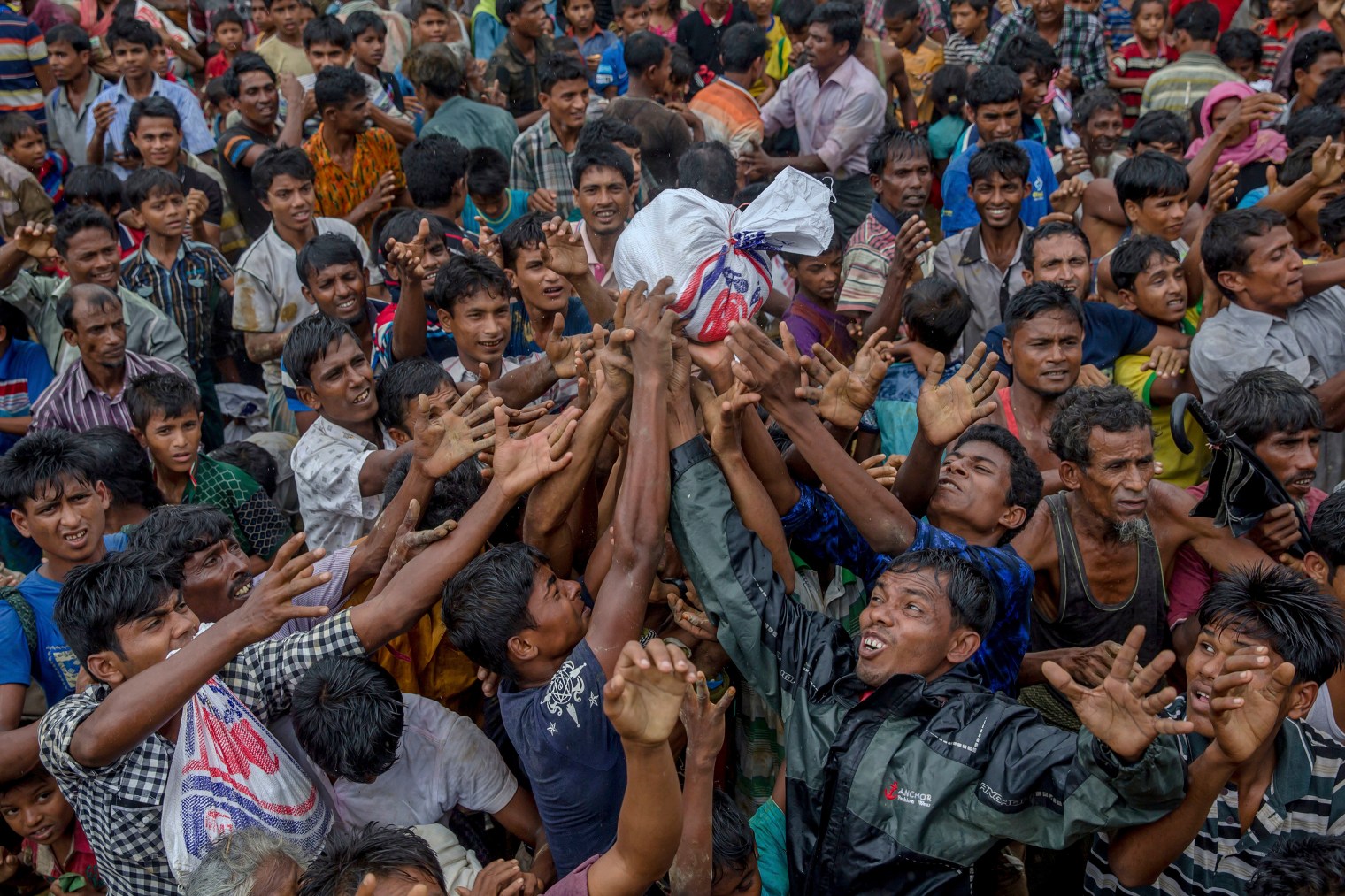 Rohingya stretch their arms out to collect food items distributed by aid agencies near the Balukhali refugee camp on Sept. 18. Dar Yasin—AP
Rohingya stretch their arms out to collect food items distributed by aid agencies near the Balukhali refugee camp on Sept. 18. Dar Yasin—AP
Interspersed with all this are thoughts of my own situation and family back home. In Kashmir, I have often argued with the school authorities in my daughters’ school about how many books they have to carry and how heavy their bags are.
Here, I see kids carrying their aged mothers and fathers across dangerous waters and slippery slopes, hungry and exhausted. What I have seen these past few days has shifted the ground beneath my own two feet.
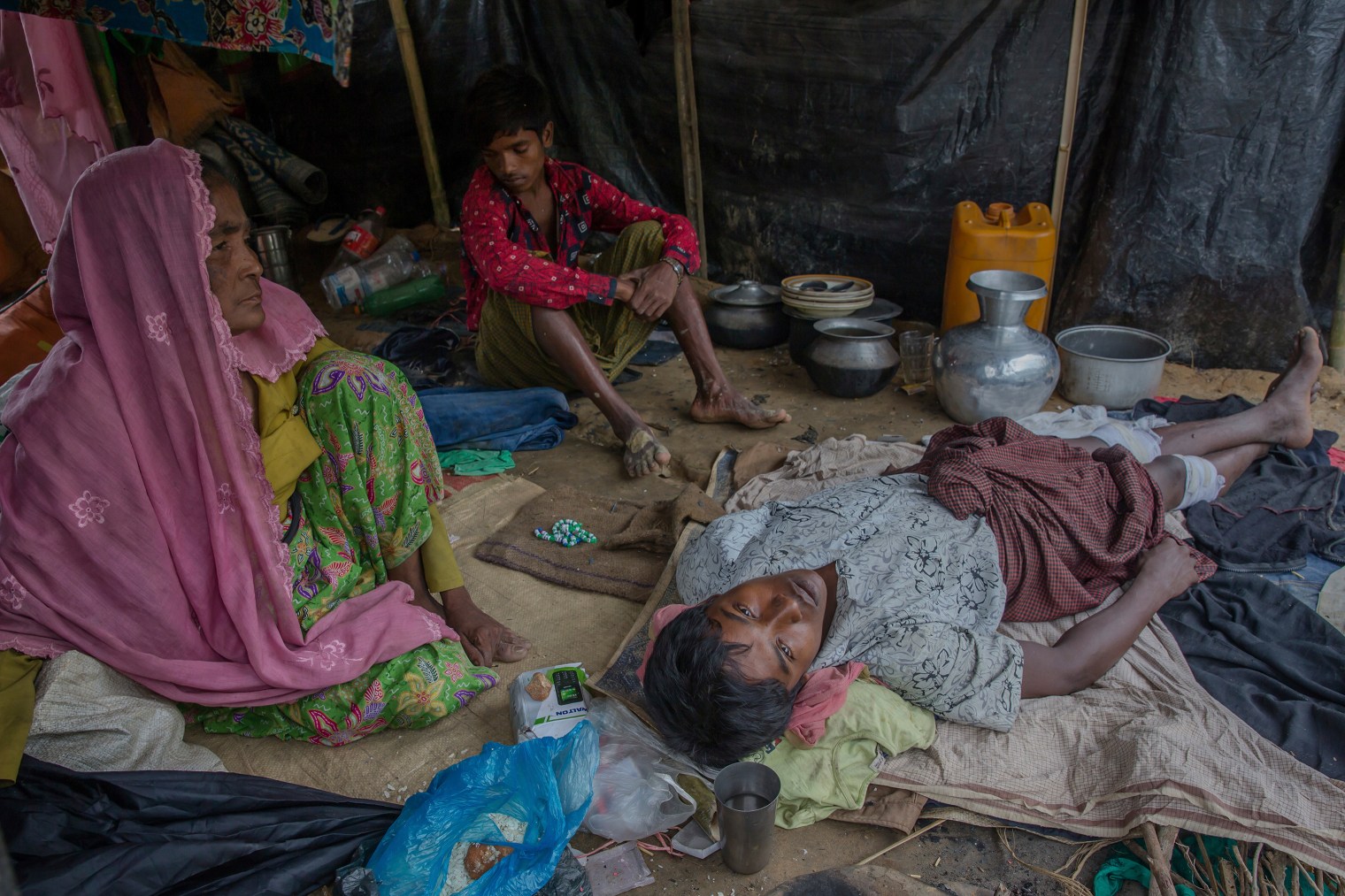 Mohammad Kaleem-ullah, who was injured while fleeing Myanmar, recovers as his mother and brother sit beside him in the Kutupalong refugee camp on Sept. 18. Dar Yasin—AP
Mohammad Kaleem-ullah, who was injured while fleeing Myanmar, recovers as his mother and brother sit beside him in the Kutupalong refugee camp on Sept. 18. Dar Yasin—AP
Dar Yasin is an Associated Press photographer based in kashmir. Follow him on INSTAGRAM @DARYASINAP.
Andrew KATZ, Who edited this photo essay, is Time‘s Senior Multimedia Editor. Follow him on Twitter @katz.